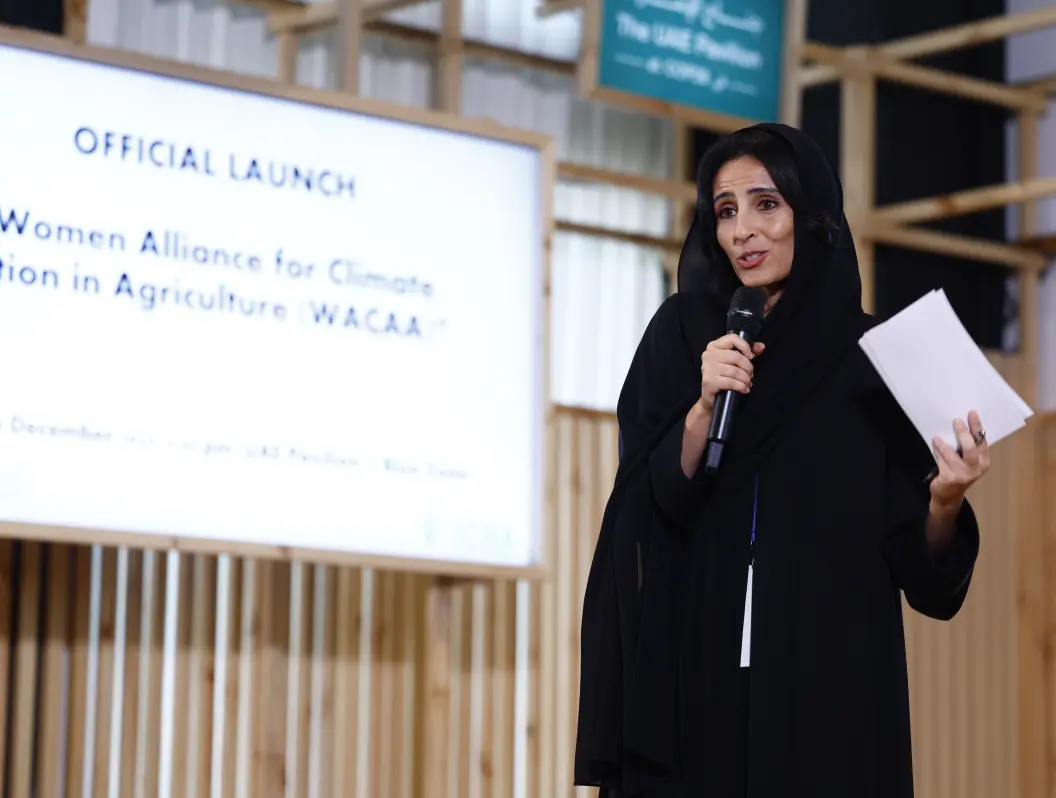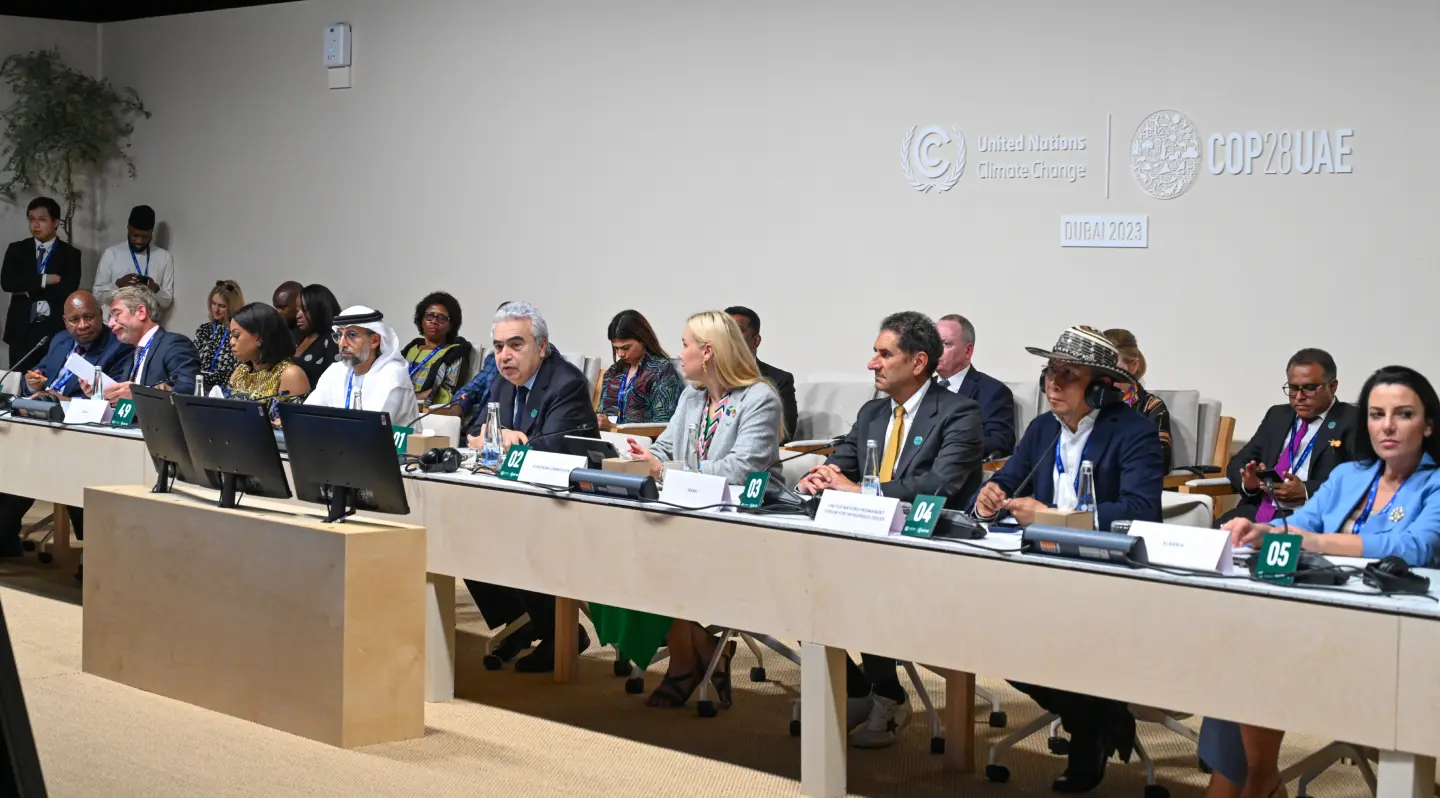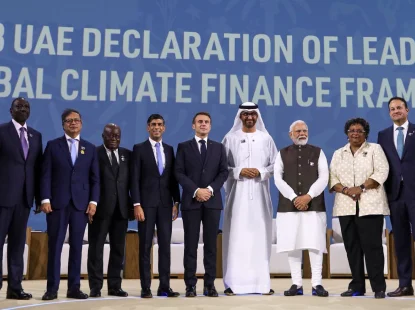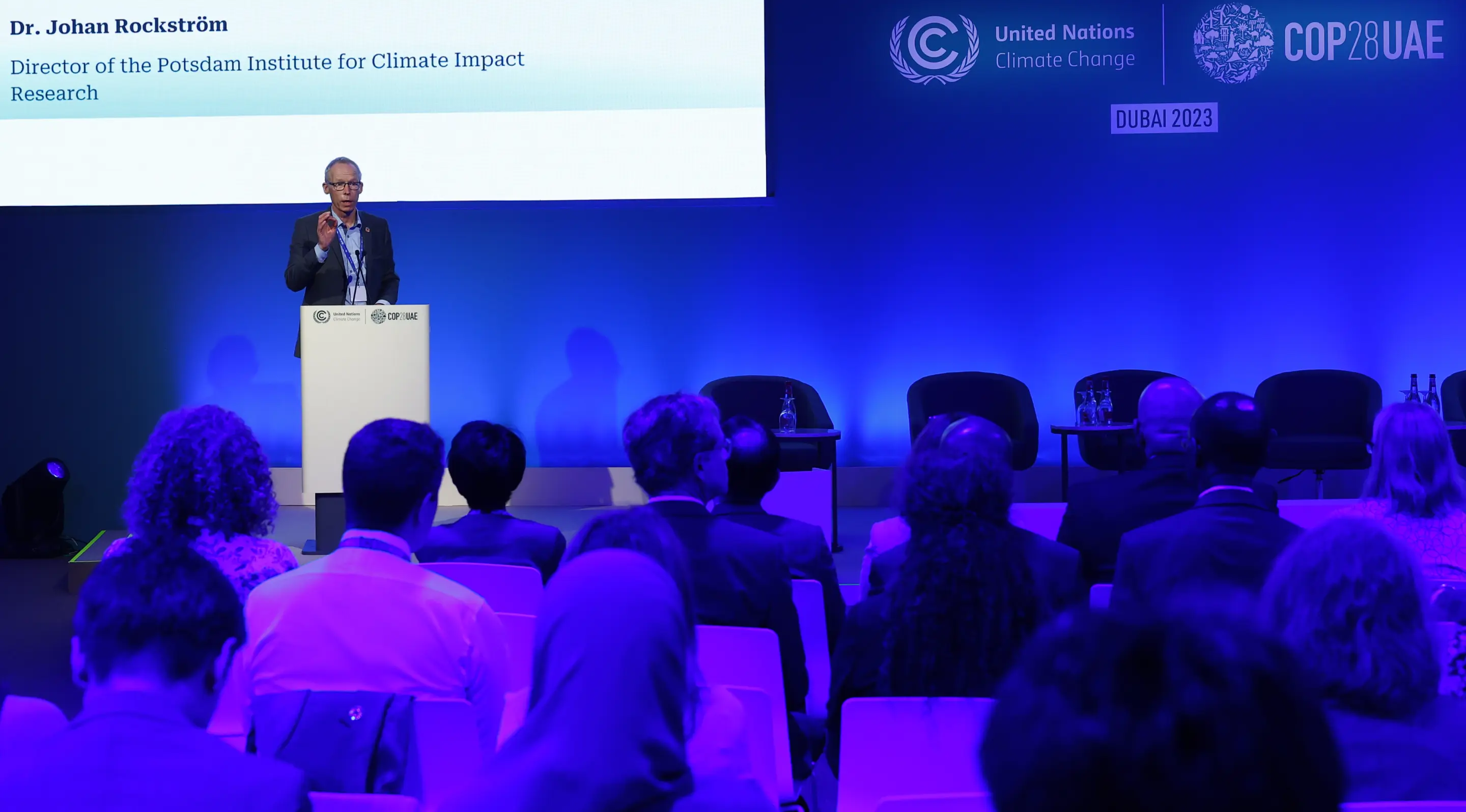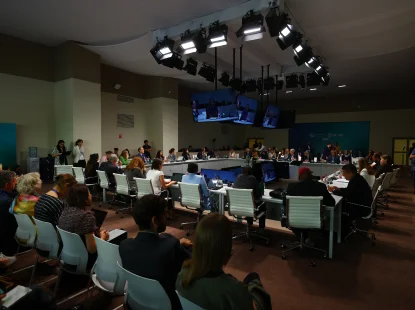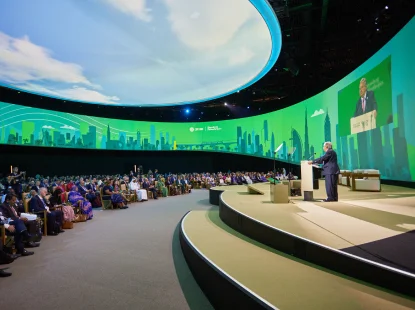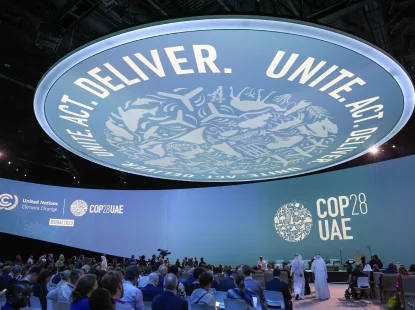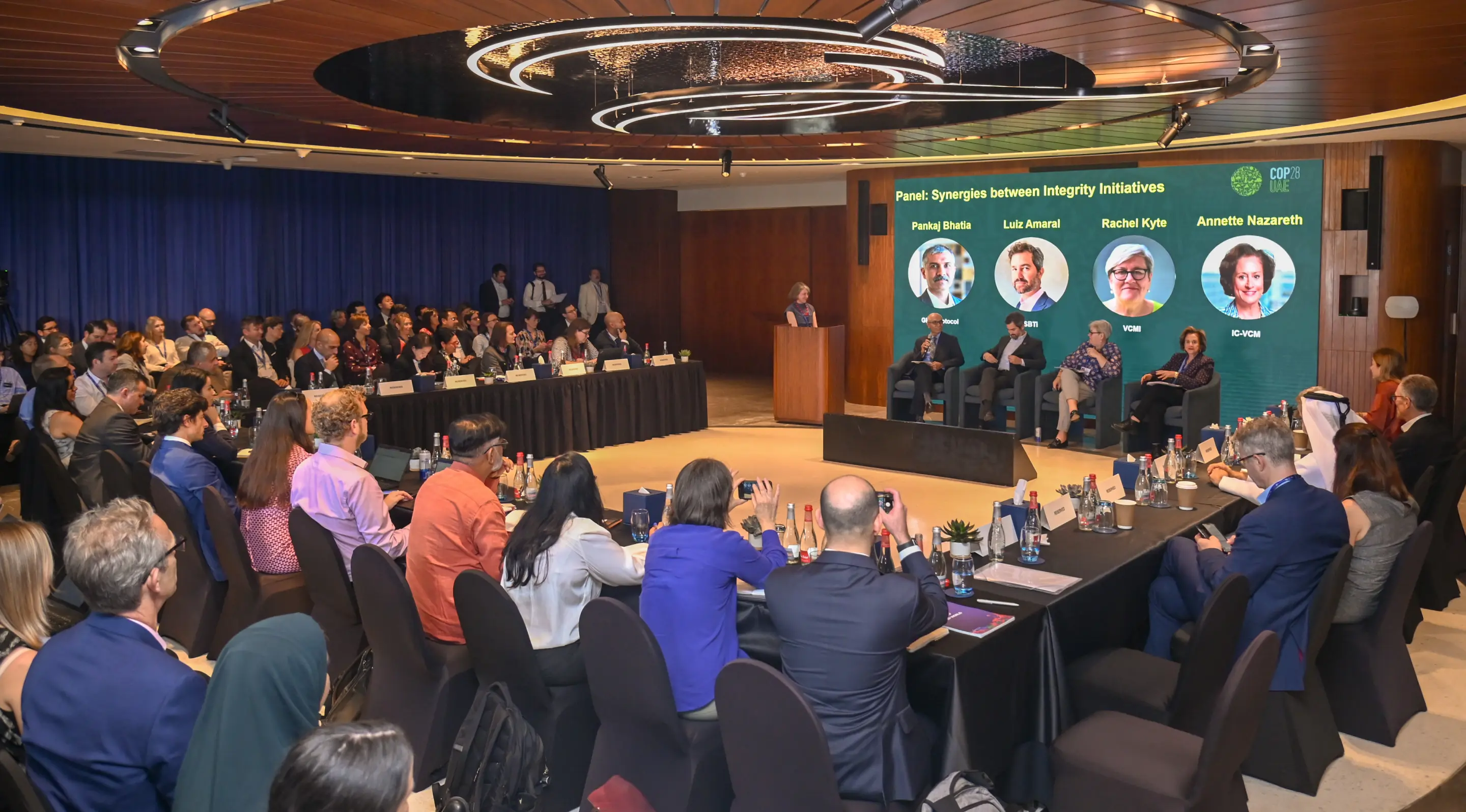Reaffirming that collaborative and science-based climate action coordinated between national and subnational governments - including cities, towns, states and regions - is critical and creates additional potential for emissions reduction, building resilience, and avoiding severe climate impacts,
Acknowledging respective national legislations, regulations, and circumstances, and the UNFCCC and the Paris Agreement as the primary intergovernmental fora for the global response to climate change.
Encouraged by the work and contributions of non-Party stakeholders, including cities, towns, states and regions, to the Paris Agreement process since its adoption,[1] the inaugural convening of the Ministerial Meeting on Urbanization and Climate Change at COP27 and its second iteration at COP28, and the work of the Local Governments and Municipal Authorities (LGMA) constituency to the UNFCCC,
We, the countries identified below, gathered at COP28, pledge to: [2]
To achieve these objectives, we will in nationally determined ways:
Consult
1. Consult with our respective subnational governments, as appropriate and applicable, to determine the avenues for subnational action to contribute to national mitigation and adaptation commitments and strategies, and their subsequent implementation and monitoring.
Collaborate
2. Work collaboratively with our respective subnational governments to unlock and
realise mitigation and adaptation action opportunities at the subnational level by
involving them, as appropriate and applicable, in the review, design, enhancement,
consolidation and implementation of our national commitments and strategies.
NDC 2025
3. Create inclusive institutional and informal processes to enable subnational
governments to contribute to further enhancing NDCs, where applicable, ahead of
COP30 in 2025, and, where available and appropriate, integrate local and territorial
baseline information, targets and actions for emissions mitigation and adaptation
across all sectors and industries.
NDC investment
4.Include relevant subnational government projects (encompassing mitigation and
adaptation) in climate-related investment priorities (including those directly and
indirectly related to NDCs) and strive to help them secure the resources necessary
from public and private financial institutions, as applicable, to begin or scale up
implementation, including but not limited to supporting project preparation, pipeline
development, aggregation of projects, new financial instruments or policy reform at
local, national, regional and global levels as needed.
Voluntary review
5. Undertake, as appropriate and applicable, regular, and inclusive country-led
reviews of progress at national and subnational level around the implementation of
CHAMP commitments through existing processes, which may include the Voluntary
National Review process of the 2030 Agenda for Sustainable Development, with a
view to ensure that national policy frameworks support and, where appropriate, can
accelerate ambitious multilevel climate action.
High Level Dialogue
6. Meet, amongst the endorsers of CHAMP, with representative subnational leaders, at
a global High Level Political Dialogue on Multilevel Climate Action in the lead up to
both COP29 and COP30 to share good practices and lessons learned in implementing
the CHAMP commitments, to be compiled into a summary shared, among others, as a
contribution to the Ministerial Meeting on Urbanization and Climate Change.
[1] Including the Marrakech Partnership for Global Climate Action established in 2022, the Cities Race to Zero and Resilience, subnational contributions to the 2030 Breakthroughs and the Sharm el Sheikh Adaptation Agenda, and the COP27 Presidency’s Sustainable Urban Resilience for the next Generation (SURGe) initiative
[2] This document is a voluntary and non-binding commitment which does not give rise to any rights or obligations under international law.
Signatures:
1. Albania
2. Andorra
3. Antigua and Barbuda
4. Armenia
5. Australia
6. Azerbaijan
7. Bahamas
8. Bangladesh
9. Belgium
10. Bhutan
11. Brazil
12. Brunei Darussalam
13. Bulgaria
14. Burkina Faso
15. Cabo Verde
16. Canada
17. Chad
18. Chile
19. Colombia
20. Costa Rica
21. Cote d'Ivoire
22. Denmark
23. Dominican Republic
24. El Salvador
25. Estonia
26. Eswatini
27. Ethiopia
28. Finland
29. France
30. Germany
31. Ghana
32. Guatemala
33. Hungary
34. Iceland
35. Italy
36. Jamaica
37. Japan
38. Jordan
39. Kenya
40. Kiribati
41. Kyrgyzstan
42. Lebanon
43. Lesotho
44. Mexico
45. Moldova
46. Mongolia
47. Morocco
48. Netherlands
49. Nicaragua
50. Nigeria
51. North Macedonia
52. Norway
53. Pakistan
54. Palau
55. Panama
56. Papua New Guinea
57. Paraguay
58. Philippines
59. Poland
60. Portugal
61. Rwanda
62. Saint Vincent and the Grenadines
63. Serbia
64. Seychelles
65. Sierra Leone
66. South Korea
67. Sri Lanka
68. Türkiye
69. Turkmenistan
70. UAE
71. Ukraine
72. United States of America
73. United Kingdom
74. Yemen
